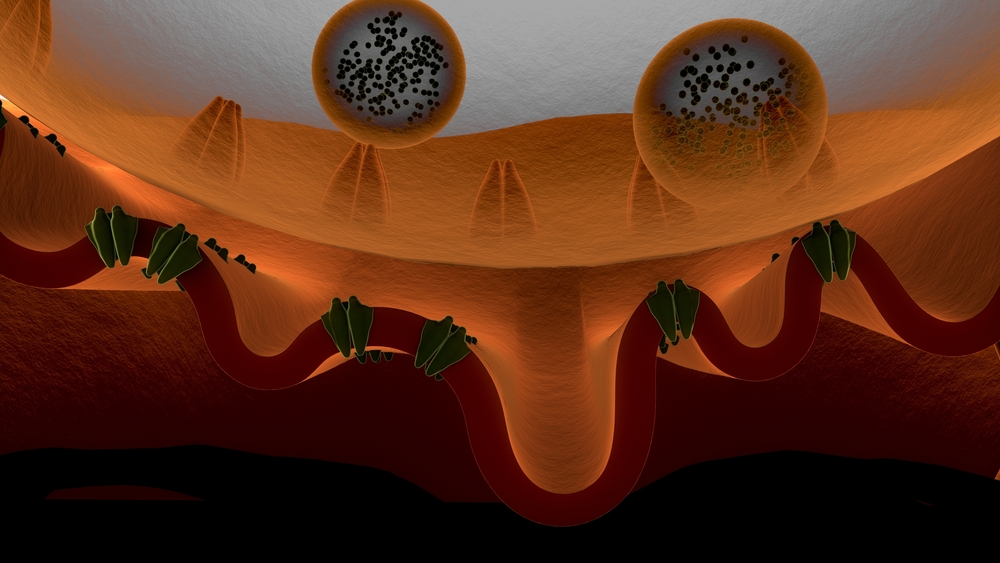Defects in Cellular ‘Cleaning System’ May Trigger Motor Neuron Diseases, Study Suggests
Written by |

Defects in our cells’ natural cleaning system — called autophagy — may be a trigger for the development of motor neuron diseases such as spinal muscular atrophy (SMA), researchers at the University of Würzburg, Germany, suggest.
Their study, “Plekhg5-regulated autophagy of synaptic vesicles reveals a pathogenic mechanism in motoneuron disease,” was published in the journal Nature Communications.
Damage and death to motor nerve cells (neurons) is the cause of many motor neuron diseases, including SMA. Researchers developing therapies for these diseases are largely looking to halt the processes that induce damage to nerve cells so as to prevent the cells’ death.
“So far, the development of new drugs has focused on preventing cell death mechanisms and on breaking down the protein aggregates in the affected nerve cells,” Michael Sendtner, head of the Institute of Clinical Neurobiology at Würzburg University’s hospital, said in a press release.
Scientists on Sendtner’s team identified autophagy as a potential treatment target for SMA and other motor neuron diseases.
Autophagy means “self-eating,” and is a key process used by our cells to maintain equilibrium: it degrades cells constituents that are damaged or are no longer required, so that they can be recycled and used in new functions.
In motor neurons, previous studies show that autophagy is required for proper nerve impulse transmission to muscle cells. The mechanisms regulating autophagy in motor neurons, however, are not all understood.
The German researchers found that the PLEKHG5 gene regulates autophagy rate in motor neurons. They performed experiments on motor nerve cells grown in culture and later in mice with a deactivated the PLEKHG5 gene.
Results showed that motor nerve cells without PLEKHG5 had lower rates of autophagy and, as a consequence, gathered or accumulated synaptic vesicles. These synaptic vehicles are vital components of nerve pulse transmission to muscle cells, as they carry key neurotransmitters, such as acetylcholine. Diminished autophagy and synaptic vesicle accumulation was also observed in the nervous system of mice lacking PLEKHG5.
Moreover, the researchers found that the length of the axon of nerve cells — the ‘road’ by which the nerve impulses travel — was reduced in cells lacking PLEKHG5.
These “findings deliver substantial evidence that dysfunctional autophagy plays a central role in the development of motor neuron diseases,” Sendtner said.
The researchers are hope their discovery will promote work into new ways of treating motor neurons diseases like SMA.



